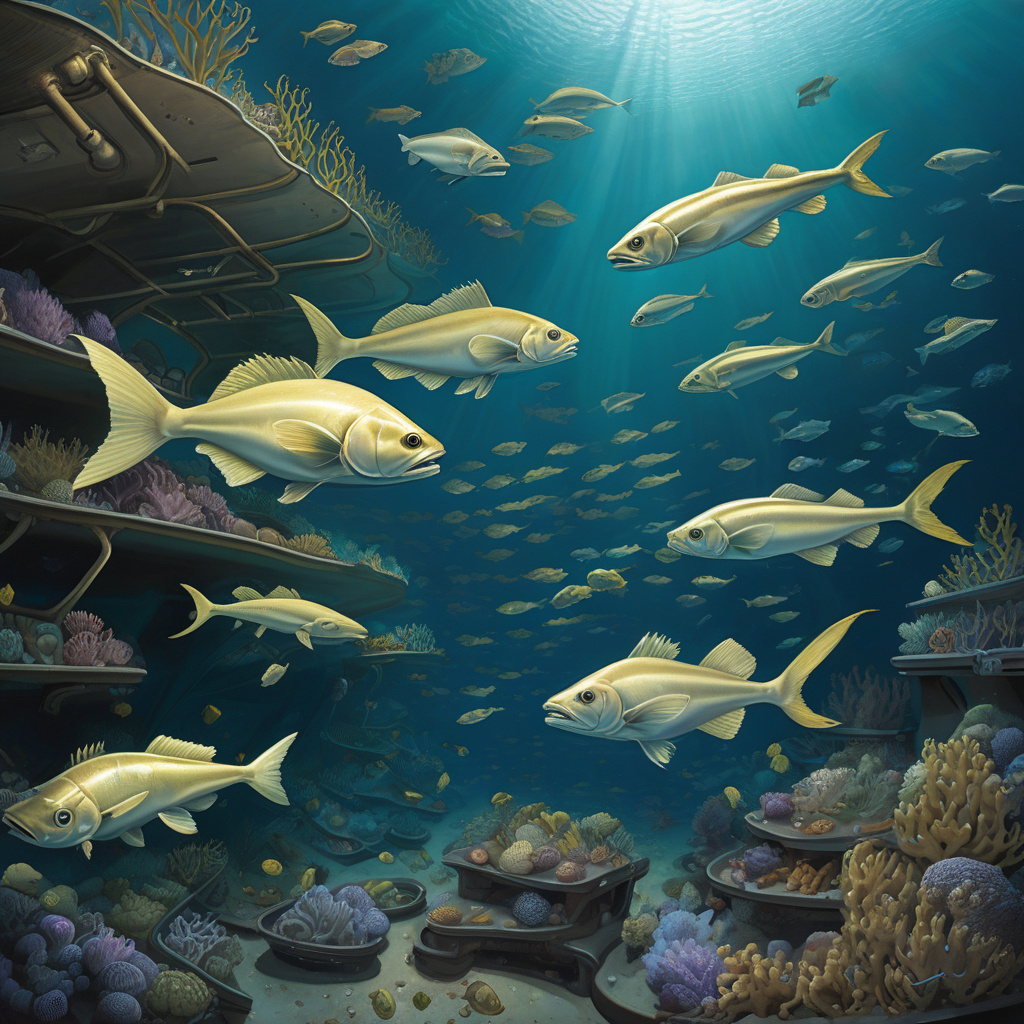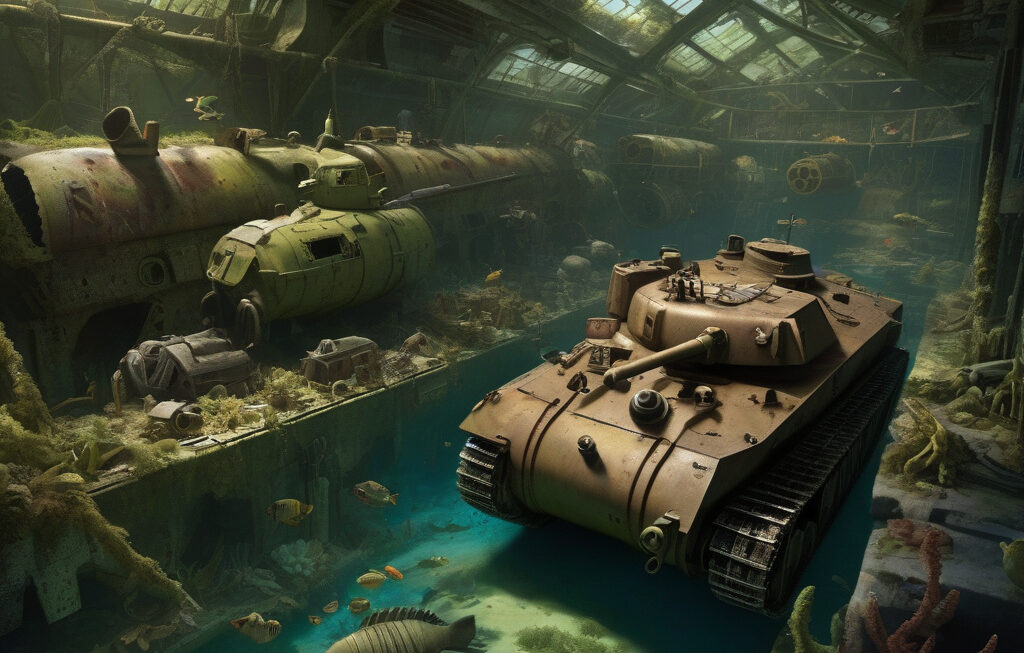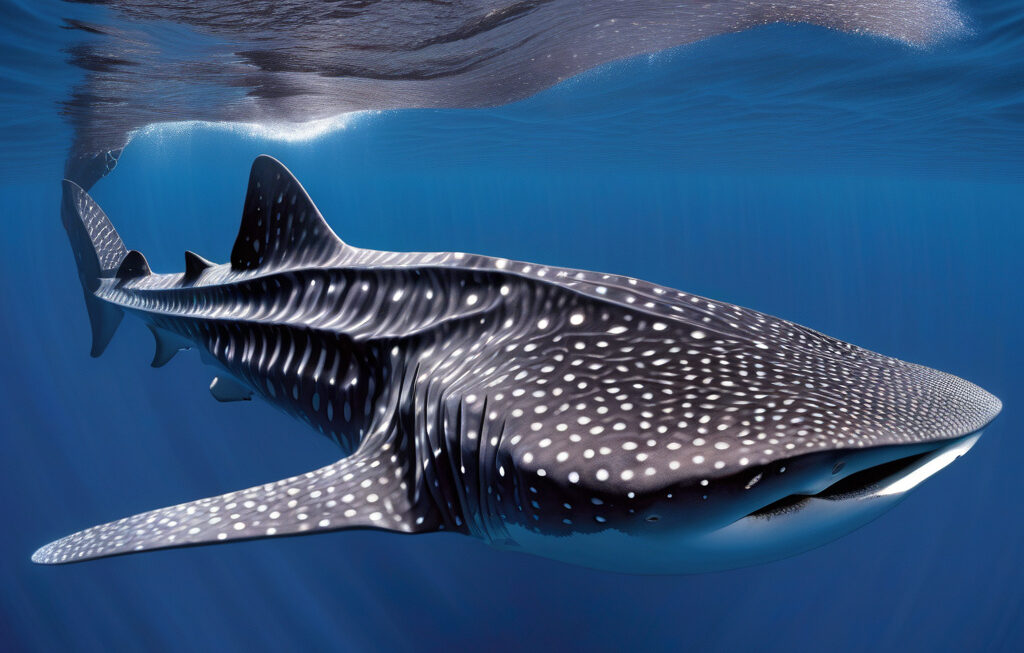CO2 Engineers of the Deep Sea: How Cod and Eel are Saving the Environment by Storing Carbon in the Ocean
New research reveals that many of the fish species we eat are vital to maintaining the delicate balance of our ocean ecosystems. Among these species, cod and eel have emerged as unexpected heroes in the fight against climate change. These underwater creatures are not just a source of sustenance for us but also play a crucial role in sequestering carbon dioxide from the atmosphere.
Cod, known for its flaky white flesh and mild flavor, is a staple in many cuisines around the world. However, beyond its culinary appeal, cod also helps to remove CO2 from the environment. As part of the marine food chain, cod consumes phytoplankton and other organisms that have absorbed carbon dioxide. When cod excretes waste or dies, the carbon stored in its body sinks to the ocean floor, effectively removing it from the atmosphere.
Similarly, eels, with their snakelike bodies and elusive nature, are another species that contribute to carbon storage in the ocean. Eels play a vital role in the carbon cycle by consuming organic matter and storing carbon in their tissues. As eels migrate across vast ocean expanses, they transport this carbon to different locations, where it eventually settles on the seabed.
The significance of these findings cannot be overstated. With the increasing levels of CO2 in the atmosphere leading to global warming and ocean acidification, understanding the role of marine species in carbon sequestration is more important than ever. By recognizing the contribution of fish like cod and eel to this natural process, we can better appreciate the interconnectedness of marine ecosystems and the environment as a whole.
Furthermore, this research underscores the importance of sustainable fishing practices to ensure that these CO2 engineers of the deep sea can continue their valuable work. Overfishing and habitat destruction not only endanger fish populations but also disrupt the delicate balance of carbon storage in the ocean. By implementing measures to protect and preserve marine habitats, we can support the efforts of cod, eel, and other species in mitigating climate change.
In addition to their role in carbon sequestration, cod and eel also serve as indicators of ocean health. Changes in their populations can reflect broader environmental shifts, alerting scientists to potential imbalances in marine ecosystems. By monitoring the abundance and distribution of these species, researchers can gain insights into the overall state of the ocean and take proactive steps to address any issues that may arise.
As we look to the future, it is clear that the humble cod and eel are not just inhabitants of the deep sea but essential players in the fight against climate change. By recognizing and protecting the important role of these fish in storing carbon in the ocean, we can take a step towards a more sustainable and balanced planet for generations to come.
#CO2Engineers, #DeepSeaSaviors, #CarbonStorage, #MarineEcosystems, #SustainableFishing












